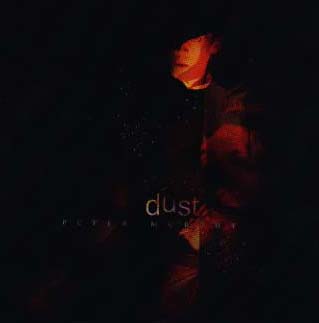|
A
native of the U.K., Murphy moved to Turkey in 1992 when his Turkish
wife, Beyhan, was named the artistic director of Turkey's National
Contemporary Dance Company. He says he met first Beyhan in 1982
when asked to audition for a part in an independent film she was
making.
"After we left the
audition, I asked my manager what her name was," Murphy said.
"He said 'Beyhan,' and I said 'What kind of name is that?'
and he said 'Turkish.' I had absolutely no idea."
Though a "nice break
from London," Murphy said the move to Turkey was a massive
cultural adjustment. "You have to learn to open yourself to
the unknown and be open, in that sense," he said. "The
Turkish culture, the quality of love there and the social family
values are on a different level. The people are very in touch with
each other. There isn't that sort of typical British cold-shoulder
insular environment there at all. It's very much a peoples' culture."
Moments into Murphy's
latest solo effort, Dust, released just last week on Metropolis
Records, and it's impossible to ignore the country's influence on
his music. There has always been a sort of mystical underside to
Murphy's hooks, but Dust takes the implied spiritual-ness
to new levels, saturating every track with as many Middle Eastern-sounding
references as there are dance beats. The result is a throbbing,
trancey, culturally flavored album that never looses sight of its
pop roots.
Murphy also credits collaborator
Mercan (pronounced Mer-jan) Dede for the sounds on Dust.
He discovered Mercan's music through his wife, who had been considering
his music for her dance company. "I knew instinctively he would
be the right person to co-produce my next album," Murphy said.
"He understood what animal I was hearing in my head.
"He's young -- a
fine artist more so than a rock artist. In addition, he's a rave
sort of DJ where he spins and does five hour sets in clubs. He's
not what the name Mercan Dede suggests -- in a classic way in Turkey
if you have the title 'Dede' you're an old, wise, spiritual master.
That's what was intriguing. He has this great, smart Western esthetic
running through his music and that's what came around in my head.
I knew that I had met the right person and that this was going to
be a Peter Murphy album and not some lame World album."
Murphy said despite the
obvious Middle Eastern flavor, Dust, whose support tour brings
Murphy to the anything-but-spiritual confines of The Ranch Bowl
March 14, is the natural progression that his fans will recognize.
"If you listen to 'Socrates The Python,' off Love Hysteria
or 'Huuvola,' off Cascade or even 'Bela Lugosi's Dead,' all
the elements are there, but here it's much more focused.
"My signature is
that whatever I do must be authentic and completely ahead of its
time and pioneering in a way," he said. "I'm also very
interested at making subversive pop songs. If you listen to Dust,
you'll hear those songs. It's kind of like taking my hardcore fans
to the very heart of where I'm going. I mean, this could be a Bauhaus
album."
|

|
"If
you listen to 'Socrates The Python,' off Love Hysteria
or 'Huuvola,' off Cascade or even 'Bela Lugosi's Dead,'
all the elements are there, but here it's much more focused."
|
|
|

![]() webboard
interviews
webboard
interviews